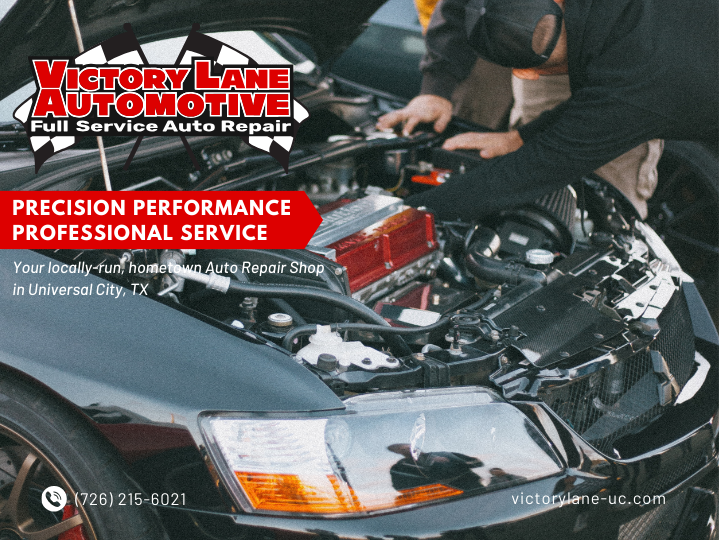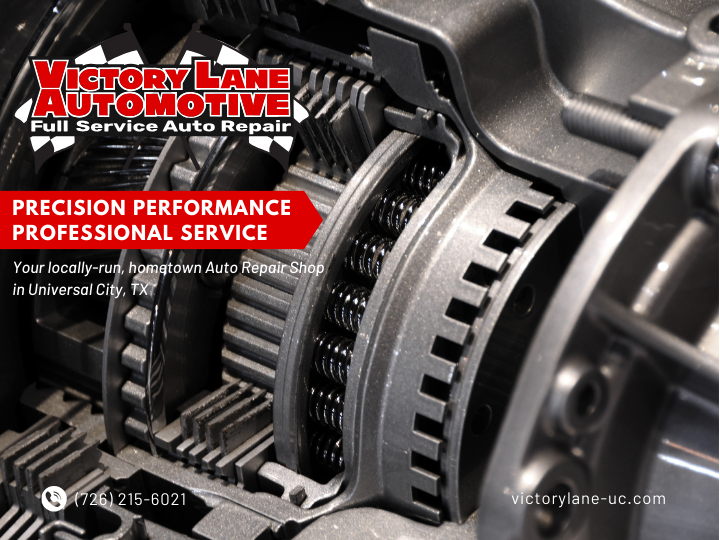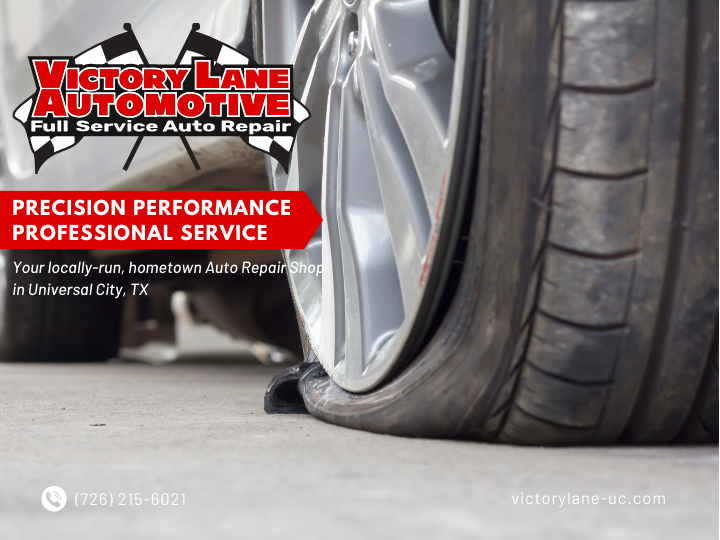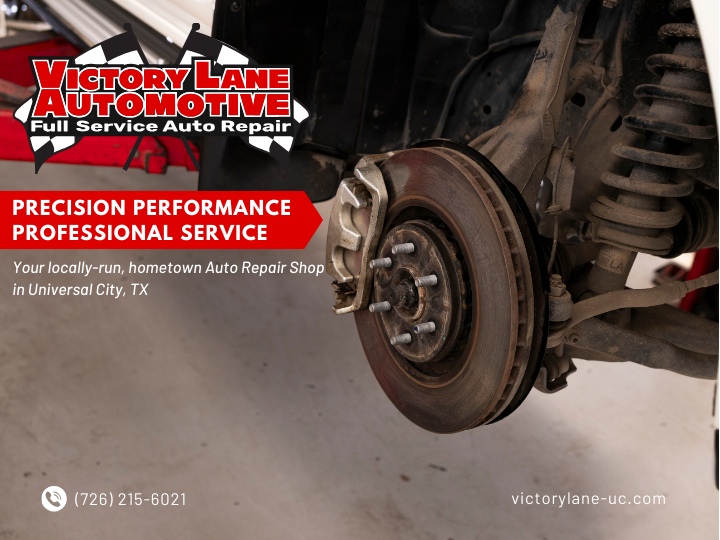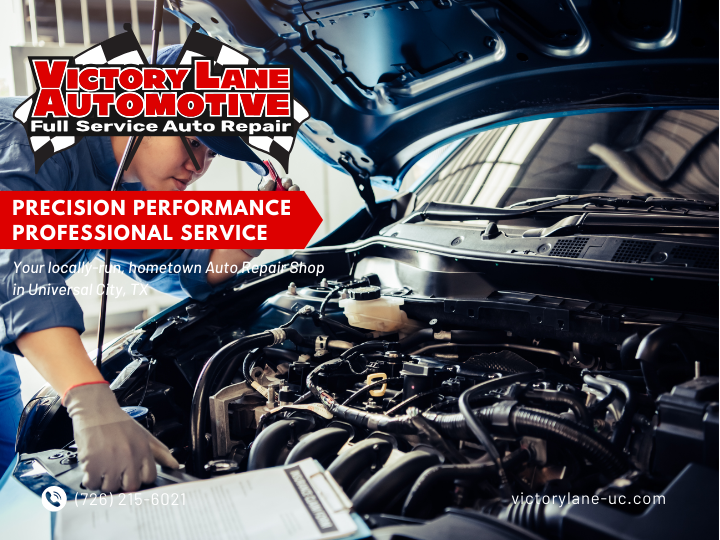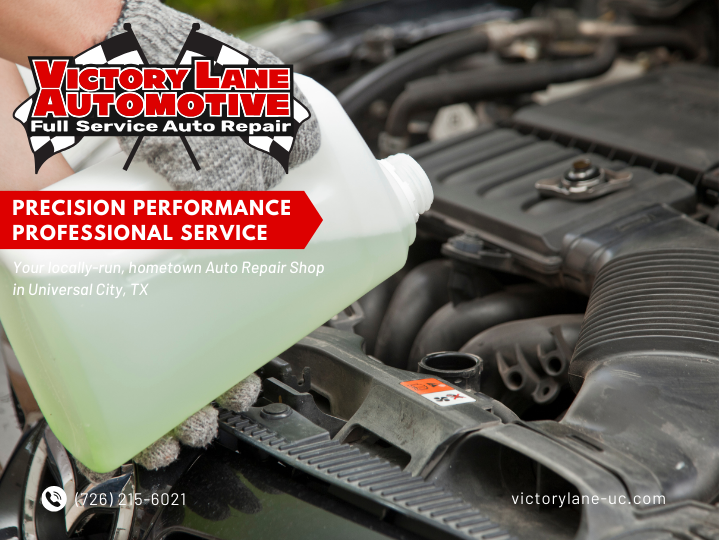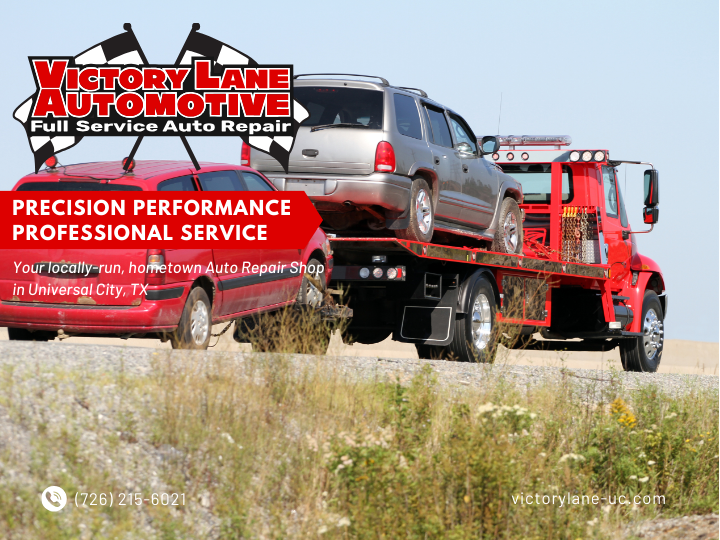Why does my dashboard say brake?
Why does my dashbaord say brake?

Why does my dashboard say brake?
It’s alarming when a warning light illuminates on your dashboard, especially when it says "BRAKE." While the brake system is one of the most critical components of your vehicle, knowing why this light has appeared and what actions you need to take can prevent bigger issues or accidents. In this blog post, we'll dive into the possible reasons your dashboard brake light is on, what each scenario means, and how to address the problem safely.
The Role of Your Vehicle's Brake System
Before diving into the reasons for the warning light, it’s essential to understand the importance of your braking system. The brakes are responsible for slowing down and stopping your car. They comprise several parts, including brake pads, rotors, calipers, hydraulic fluid, and the brake pedal itself. When any component malfunctions or needs attention, your vehicle's brake warning system is designed to alert you.
There are two common brake-related lights that might illuminate on your dashboard: the brake system light and the Anti-lock Braking System (ABS) light. For this article, we’ll focus on the brake system light, often represented simply as "BRAKE" or by an exclamation mark inside a circle. Let’s explore the potential reasons why this light appears.
1. Engaged Parking Brake
One of the most common reasons the brake light appears on the dashboard is that the parking brake, also known as the emergency brake, is engaged. This is a mechanical brake used to hold your vehicle stationary when parked.
Symptoms:
- The brake light stays illuminated even when you're driving.
Possible Causes:
- You may have accidentally left the parking brake engaged after parking.
- The parking brake sensor might be malfunctioning, even if the brake itself is not engaged.
Solution:
- Ensure the parking brake is fully disengaged by checking the lever or pedal. In most vehicles, releasing the brake will turn the dashboard light off.
- If the light remains on after releasing the brake, there may be a problem with the parking brake sensor, which would require further inspection by a professional mechanic.
2. Low Brake Fluid Level
Brake fluid is the hydraulic fluid that allows the brake system to operate. It transfers the force from your foot pressing the brake pedal to the brake calipers, which then squeeze the brake pads onto the rotors to stop the vehicle. Over time, brake fluid levels can drop, often due to wear on the brake pads or a leak in the system.
Symptoms:
- Brake warning light remains on.
- The brake pedal feels "spongy" or softer than usual when pressed.
- Reduced braking performance, including longer stopping distances.
Possible Causes:
- As your brake pads wear down, the brake calipers extend further to press the pads against the rotors, which can lower the brake fluid level.
- A leak in the brake system can also cause a drop in brake fluid.
Solution:
- Check the brake fluid level by inspecting the reservoir under the hood. If the level is below the minimum mark, top it up with the appropriate brake fluid (consult your owner’s manual for the correct type).
- If the fluid level drops again after refilling, there may be a leak in the system that requires immediate professional attention. Ignoring a leak could lead to brake failure.
3. Worn Brake Pads
As the brake pads wear down over time, they can trigger the brake light on your dashboard. Some vehicles are equipped with sensors that monitor the thickness of the brake pads. When they reach a critically thin point, the brake light will illuminate as a warning to replace the pads.
Symptoms:
- Persistent brake warning light.
- Squealing or grinding noises when applying the brakes.
- Reduced braking power, longer stopping distances.
Possible Causes:
- Normal wear and tear from frequent braking or driving in stop-and-go traffic.
Solution:
- Have your brake pads inspected and replaced if they’re worn out. Driving with worn pads can damage your rotors, which can be an expensive repair.
4. Brake System Leak
If there’s a leak in the brake lines or one of the components, it can cause a loss of brake fluid, which in turn reduces braking power. A leak is a serious issue, as it can result in complete brake failure.
Symptoms:
- Brake warning light stays on.
- Soft brake pedal.
- Brake fluid puddles underneath the car.
Possible Causes:
- Brake lines can corrode over time, especially in areas where roads are salted in winter.
- Damage from debris or improper maintenance could result in a puncture or crack in the brake line.
Solution:
- If you suspect a brake fluid leak, do not drive the vehicle. Call a tow truck to transport your car to a mechanic. Brake leaks must be repaired as soon as possible to avoid dangerous situations.
5. ABS System Malfunction
The ABS (Anti-lock Braking System) is designed to prevent the wheels from locking up during sudden braking, ensuring you maintain control of the vehicle. In some cases, a problem with the ABS can cause the general brake warning light to come on, even if the ABS-specific light isn’t illuminated.
Symptoms:
- Brake warning light on, possibly accompanied by the ABS light.
- Loss of ABS functionality.
- Clicking or pulsating brake pedal during sudden stops.
Possible Causes:
- Faulty ABS sensor or wiring.
- ABS module failure.
Solution:
- An ABS issue won’t necessarily affect normal braking under regular conditions, but it can make stopping harder in emergencies. A professional diagnostic is required to repair or replace faulty ABS components.
6. Issues with the Brake Light Switch
In some cases, the brake warning light could be tied to the brake light switch, which is located near the brake pedal. This switch is responsible for illuminating your brake lights when you press the pedal and can sometimes trigger a dashboard warning.
Symptoms:
- The brake lights at the rear of your vehicle might not illuminate when pressing the brake pedal.
- The "BRAKE" warning light may appear on the dashboard.
Possible Causes:
- Malfunctioning brake light switch due to wear and tear, loose connections, or electrical issues.
Solution:
- Test the brake lights by having someone stand behind the car while you press the brake pedal. If the brake lights do not illuminate, have the switch inspected and replaced if necessary.
7. Master Cylinder Problems
The master cylinder is the heart of your vehicle’s braking system. It controls the flow of brake fluid through the brake lines and provides the hydraulic pressure needed to engage the brakes. If the master cylinder fails, your braking system could stop functioning properly, leading to serious safety risks.
Symptoms:
- Brake warning light stays on.
- Brake pedal feels soft or sinks to the floor when pressed.
- Inconsistent braking performance.
Possible Causes:
- Internal leaks within the master cylinder.
- Contamination or air bubbles in the brake fluid.
Solution:
- A faulty master cylinder needs to be replaced immediately by a professional mechanic. The failure of this part can lead to brake failure, which is extremely dangerous.
8. Electrical Issues in the Brake System
Occasionally, the brake warning light may come on due to an electrical issue, such as a problem with the wiring, sensors, or the vehicle’s computer system. This may be harder to diagnose, but it’s usually accompanied by other signs, like intermittent warnings or the sudden appearance of multiple dashboard lights.
Symptoms:
- Intermittent or random appearance of the brake light.
- Multiple dashboard warning lights turn on simultaneously.
Possible Causes:
- Loose or corroded wiring.
- Faulty sensors.
- Malfunction in the vehicle’s Electronic Control Unit (ECU).
Solution:
- Electrical problems often require specialized diagnostic tools to identify the root cause. A qualified mechanic can run a diagnostic scan to determine whether a wiring or sensor issue is causing the brake light to come on.
Final Thoughts: Safety First!
Your vehicle’s brake warning light is not something to ignore. Whether it's a minor issue, such as an engaged parking brake, or a more serious one like low brake fluid or worn brake pads, driving with this warning light on could compromise your safety. As a general rule, if you’re unsure about the cause of the light or can’t resolve the issue yourself, consult a professional mechanic immediately.
Ignoring the brake warning light could result in reduced braking performance, a longer stopping distance, or in worst cases, complete brake failure, which can lead to dangerous driving conditions. Regular brake system maintenance and inspections are key to keeping you and your passengers safe on the road.
By addressing the brake warning light promptly, you ensure that your vehicle remains in optimal condition and that you’re driving safely. Always pay attention to your car’s warning lights and remember—when it comes to brakes, it’s better to be safe than sorry!
https://youtu.be/na9TuvfTIMs




